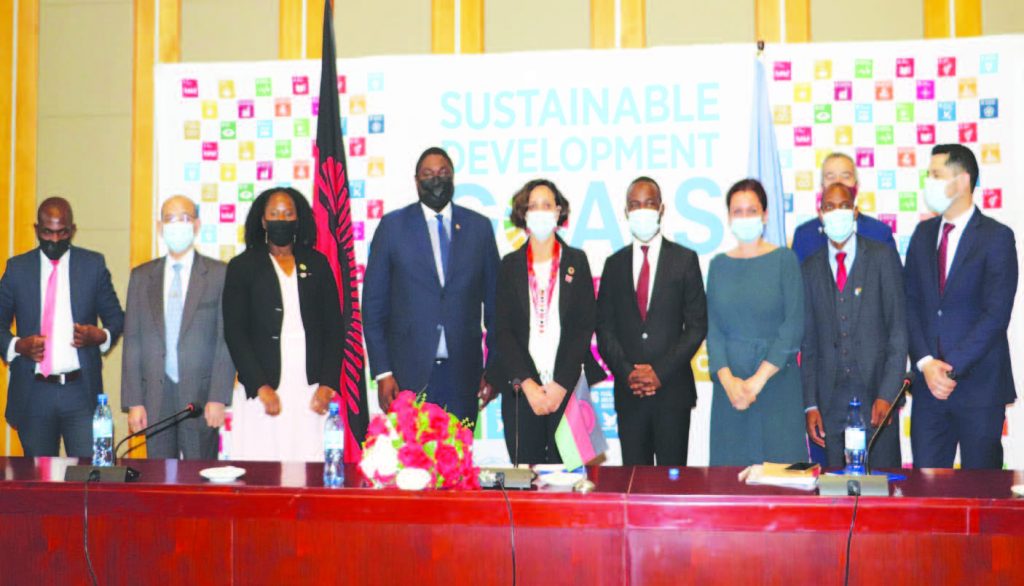
Small businesses get K28bn boost from UN

Malawi has received $35 million (about K28 billion) from the United Nations (UN) Build Malawi Fund window, a structured blended finance vehicle, to boost Small and Medium Enterprises (SMEs) in agribusiness.
This was revealed on Wednesday in Lilongwe during the 76th United Nations General Assembly (Unga) side meeting.
Speaking during the event, Minister of Industry Roy Kachale said the money will be disbursed without collateral, which has for along time proved to be a stumbling block for SMEs to access capital for business.
UN Capital Development Fund (UNCDF) raised the money to help SMEs prosper in their businesses and the money has been allocated to Malawi as one of the least developed countries to economically empower women.
He said: “We must accept that there is shortage of finances to enable SMEs work in a conducive environment.
“This funding has come at the right time and I urge business operators to get organised for this aid by coming up with business and marketing plans.”
In her remarks, UN resident coordinator Maria Jose Torres said the Build Malawi Fund seeks to bail out the country’s SMEs to enable them improve economically.
She said: ”We want SMEs to do things differently and in a sustainable way so that we change their living standards.
“The Build Malawi Window anchored to the Global Build Fund, is a specialised blended finance vehicle to boost investment and jobs in the productive sectors of the country’s economy.”
The Unga side meeting was held under the theme Unlocking Public and Private Finance for the Poor.’
The money will help integrate 75 000 SMEs as investees in supply chains, increase the incomes of participating SMEs by 30 percent, expand fiscal space with aggregated income taxes of $19.3 million (about K16 billion) and strengthen 15 supply chains.
United Nations Development Programme, Food and Agriculture Organisation and UNCDF are jointly implementing the initiative in close coordination with the Ministry of Trade.
UN figures show that Malawi records one of the lowest rates of investment in Africa, with an average of only 15 percent of gross domestic product invested, compared to 24.5 percent in Tanzania and 34.7 percent in Zambia.
Such an environment obstructs SMEs access to finance and this means that many businesses run by women and other vulnerable groups are unable to grow
Source: The Nation